Breast Reconstruction in Marrakech
Search and Compare the Best Clinics and Doctors at the Lowest Prices for Breast Reconstruction in Marrakech

Find the best clinics for Breast Reconstruction in Marrakech
With Medijump you can browse 1 facilities offering Breast Reconstruction procedures in Marrakech. The cheapest price available is $3,057 in Casablanca. And for the cheapest price globally, prices start from $477 in India.
Breast Reconstruction in Morocco
Price: $ 3,057
Breast Reconstruction in Casablanca
Price: $ 3,057
India offers the best prices Worldwide
Price: $ 477
From 13 verified reviews
Montse Alconchel Ruiz, 25 March 2020
I need you to send me your email, I was in the hospital last Saturday March 7 doing some tests and I have lost the medical report they gave me, I have tried to call them by phone several times but there is no way. my email [email protected] my name Montserrat AlconchelAdmission number 200308164407WK-001
Compare Before & After Photos of _procedure_photos.phpBreast Reconstruction
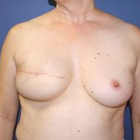
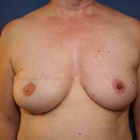
Front view
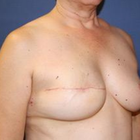
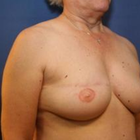
Half-side view
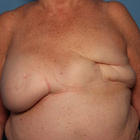
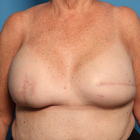
Front view
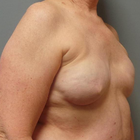
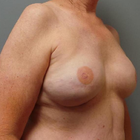
Half-side view
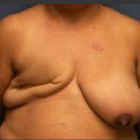
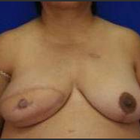
Front view
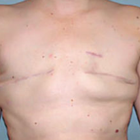
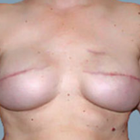
Front view
WHY US?
At Medijump, we're making medical easy. You can search, compare, discuss, and book your medical all in one place. We open the door to the best medical providers worldwide, saving you time and energy along the way, and it's all for FREE, no hidden fees, and no price markups guaranteed. So what are you waiting for?

Free

Best Price

Widest Selection

Risk-Free
What you need to know about Breast Reconstruction in Marrakech
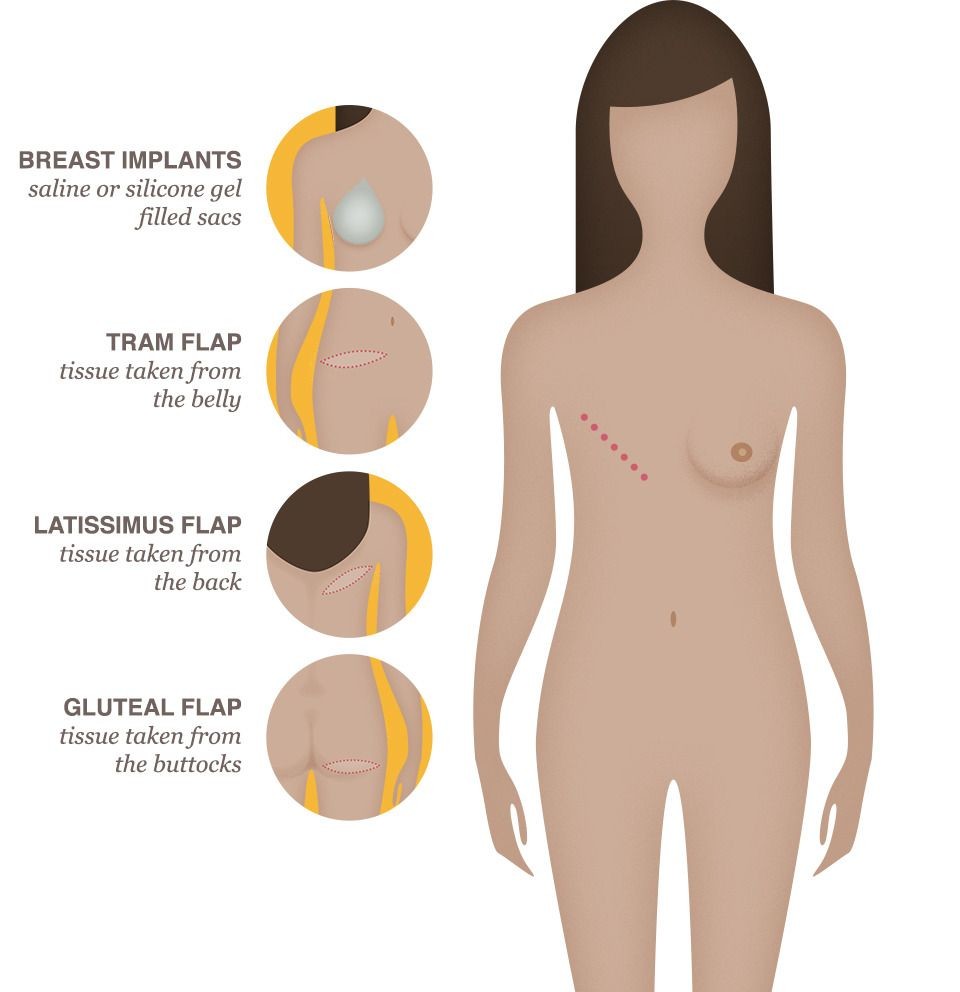
Breast reconstruction is a significant surgery undertaken to rejuvenate the physical form of a woman's chest after losing one or both breasts to cancer or another disease. In Marrakech, medical centres are well-equipped with top-tier talent in plastic surgery to facilitate this intricate procedure. Every woman's journey is different, and her treatment plan is personalized, considering her unique circumstances and needs.
It's heartening to know that breast cancer treatments like chemotherapy or radiation therapy aren't impeded by reconstruction. Moreover, this surgery doesn't spike the risk of cancer coming back. Undeniably, breast reconstruction is a major surgery with inherent risks, including chances of infection, complications with wound healing, and potential dilemmas related to implants.
What is the cost of Breast Reconstruction in Marrakech?
Undergoing surgery like Breast Reconstruction brings along a financial commitment. The expense varies extensively, depending on many factors like the complexity of the procedure, the medical professional performing the surgery, the hospital's facility, and the region, amongst others. Generally, the cost might range between $15,000 to $50,000, including multiple surgeries or intricate techniques within this estimate.
Thankfully, in many cases, insurance plans cover such surgical procedures, especially given mandates like the Women's Health and Cancer Rights Act of 1998 in the U.S. Still, out-of-pocket expenses associated with co-payment or deductibles can add up. It's recommended to navigate these aspects with your insurance provider and your chosen healthcare facility in Marrakech.
What does a Breast Reconstruction Procedure Involve?
Breast reconstruction generally happens in stages, starting with the most complex first, which may either occur at the same time as the mastectomy or later, based on the individual’s specific health conditions or treatment plan.
Two main techniques are employed in breast reconstruction. One is the use of an implant, saline, or silicone to recreate the breast shape. Two, autologous or flap reconstruction where tissue from the patient’s body like the abdomen or thigh is relocated to recreate the breast shape. The method selected is dependent on individual factors like the patient’s health, personal choice, cancer type, and stage.
After the primary surgery and post an adequate healing period, the surgeon performs a second procedure to recreate the nipple and areola. Later, to give it a natural look, the nipple-areola complex is tattooed. Remember that although it is a common procedure, complications might arise involving reaction to anaesthesia, bleeding, infection, poor healing or the need for further interventions.
How Long Should I Stay in Marrakech for a Breast Reconstruction Procedure?
Post-breast reconstruction surgery, patients typically stay in the hospital for two to five days. However, if the reconstruction was done immediately after the mastectomy, the stay could extend from three to six days.
Overall, a patient should expect to remain in Marrakech for approximately two weeks post-surgery. This allows enough time for necessary follow-ups and to address any complications, if they arise. As with any major surgical procedure, do not hasten the healing process.
What's the Recovery Time for Breast Reconstruction Procedures in Marrakech?
The recovery timeframe for breast reconstruction procedures in Marrakech varies from patient to patient. Generally, for implant-based procedures, patients may take about four to six weeks to recuperate before they return to normal routines. For more complex autologous techniques, particularly those using abdominal tissue, patients might require six to eight weeks for recovery.
Recovering patients need to temper their activities during this period. Avoid lifting heavy objects and defer strenuous exercise until your physician gives a clear signal. Medical assistance should be promptly sought if any discomforting symptoms like chronic pain, redness or swelling surface.
What's the Success Rate of Breast Reconstruction Procedures in Marrakech?
Medical success cannot just be measured in terms of complication-free postoperative progress or longevity of implants used in breast reconstruction. Patient satisfaction with their surgery, their psychological well-being following the operation, their perception of body image, and their quality of life post-surgery are equally important factors to consider. Studies indicate that between 85% to 90% of women who have undergone breast reconstruction are satisfied with the long-term results.
In Marrakech, dedicated hospitals and healthcare facilities strive to offer high-quality treatment, ensuring the best possible surgical outcomes using progressive technology and experienced professionals. Still, everyone's response to surgery varies, and outcomes depend on factors such as overall health, age, body type, and compliance with surgical advice.
Are there Alternatives to Breast Reconstruction Procedures in Marrakech?
Indeed, there are alternatives to breast reconstruction in Marrakech. The journey of every woman is unique and how she chooses to deal with the loss of a breast, or both, is a highly personal decision. Alternatives include:
- Breast Prostheses or Forms: They are silicone forms that imitate the appearance and feel of natural breast tissue. They come in diverse sizes, shapes and colours to closely match the woman's skin tone.
- Flat Closure: In this method, the surgeons sew up the chest wound smoothly, without constructing a breast mound. This option appeals to women who choose not to have more surgeries or body implants.
- Opting not to undergo reconstruction at all, also termed as "going flat: This method exhibits the woman's choice to live comfortably with her new body shape without artificial substitutes or further surgeries. It is a fully personal decision deserving respect and support.
Each of these options has pros and cons, and the choice depends on the woman’s personal preference, health status, lifestyle, and perception of her body. Regardless of the choice, it’s important to regularly monitor breast health and engage in practices that promote overall wellness.
What Should You Expect Before and After the Breast Reconstruction Procedure?
Before the surgery, comprehensive discussions with the surgeon will take place to understand treatment objectives, outcomes, and possible complications. Preoperative tests, lifestyle modifications, and nutritional advice may form a part of the preparatory process.
Postoperative care is equally important: discomfort, swelling, and bruising are normal and subside over time. Pain management strategies will be provided to help you manage discomfort effectively. Your surgeon will provide personalised guidance on caring for your surgical site, usage of medications, and physical activities.
What sort of Aftercare is Required for Breast Reconstruction Procedures in Marrakech?
The following points should be considered post-operation:
- Follow the instructions given by your doctor and take your medicines as and when prescribed.
- Consult a nutritionist for a diet plan. A healthy diet helps you recover faster.
- Do not wear a padded or underwire bra until allowed by your doctor.
- Use surgical bras in the early few days after the surgery.
- Avoid excessive unnecessary movement of your breasts.
- Do not lift heavy objects and children - it could stretch on your stitches.
- Change your bandage whenever it gets dirty. Germs can cause infection.
- Do not take a bath when the bandages are still intact. A wet bandage can also be the cause of infection.
- Abstain from sexual activity for at least 6 weeks.
- Take rest - give yourself time to recover.
How Do I Prevent Cancer from Recurring?
Preventing cancer recurrence largely revolves around a balanced, healthy lifestyle coupled with regular medical check-ups. Regular exercise, maintaining a healthy weight, and eating nutritiously can contribute to cancer prevention. Smoke cessation and limiting exposure to secondhand smoke are crucial for both prevention and postoperative recovery.
Regular breast self-examinations, as well as mammograms and follow-up visits, are critical for early detection of any recurrence. Stress management techniques like yoga, meditation, and spending time in nature can also play an essential role in overall health.
Your medical team in Marrakech is there to support you, offering advice tailored to your individual health status and medical history. Remember, proactive health checks are key to maintaining overall health and preventing the recurrence of diseases like cancer.
What is the ideal time to have Breast Reconstruction surgery after a Mastectomy in Marrakech?
The decision regarding when to have Breast Reconstruction following a Mastectomy in Marrakech is largely based on the individual's health status, treatment plan, personal preferences, and discussions with the oncology team. Breast reconstruction can be done at the time of mastectomy (immediate reconstruction) or at a later date (delayed reconstruction). Immediate reconstruction might offer psychological benefits and less overall surgery since both procedures are done together. Yet, if additional treatments such as radiation therapy are required post-mastectomy, opting for delayed reconstruction could be advisable to avoid risks posed by radiation to the new construct.
Remember that deciding on the timing of breast reconstruction is a personal choice and should be made in consultation with your healthcare providers. They can provide specific guidance based on your health condition and treatment plan.
How Will Breast Reconstruction in Marrakech Impact My Routine Mammograms and Breast Cancer Detection?
Breast reconstruction surgery may impact the way routine breast cancer screenings are conducted. After a mastectomy with or without reconstruction, women usually don't need routine screening mammograms on the treated side since all breast tissue has been removed. However, they would need routine mammograms for the untreated breasts.
If you've had reconstruction using your own body tissue, your surgeon or oncologist will guide you on whether or not you'll require mammograms on the reconstructed breast. Remember, mammograms can still be performed on reconstructed breasts, and self-breast exams should be a regular part of your health routine.
Whilst the information presented here has been accurately sourced and verified by a medical professional for its accuracy, it is still advised to consult with your doctor before pursuing a medical treatment at one of the listed medical providers
No Time?
Tell us what you're looking for and we'll reachout to the top clinics all at once
Enquire Now

Popular Procedures in Marrakech
Prices Start From $497

Prices Start From $208

Prices Start From $834

Prices Start From $500

Prices Start From $93

Prices Start From $85

Recommended Medical Centers in Marrakech for Breast Reconstruction

- Interpreter services
- Translation service
- Religious facilities
- Medical records transfer
- Medical travel insurance
- Health insurance coordination
- TV in the room
- Safe in the room
- Phone in the room
- Private rooms for patients available

- Interpreter services
- Translation service
- Religious facilities
- Medical records transfer
- Medical travel insurance
- Health insurance coordination
- TV in the room
- Safe in the room
- Phone in the room
- Private rooms for patients available

- Interpreter services
- Translation service
- Religious facilities
- Medical records transfer
- Medical travel insurance
- Health insurance coordination
- TV in the room
- Safe in the room
- Phone in the room
- Private rooms for patients available
Breast Reconstruction in and around Marrakech
About Marrakech
Located to the north of the foothills of the Atlas Mountains, Marrakech is the fourth largest city in the Kingdom of Morocco. Found nearly a thousand years ago, this city is where Africa, the Middle East, and Europe fuse into one. It is widely known as the red city because of its famous red walls, alleys, and plazas. The city offers a rare opportunity for tourists to immerse themselves in culture, where modern and ancient merge in a perfect balance. Just like many Moroccan cities, the medina in Marrakech is too beautiful to be missed.
Marrakech has the perfect environment for relaxing and rejuvenating, which is one of the reasons why many medical tourists seek health treatments in this beautiful red city. The medical facilities in the city offer outstanding quality with the latest technology and a wide range of treatments. Healthcare in this city is considerably cheaper than in Western countries and many people are also attracted to Marrakech because it is known to excel in modern plastic surgery. The most sought-after procedures are liposuction, nose jobs, breast lifts, and ear surgery. Other treatments such as dental care, spa, and wellness are also popular.
Popular Areas in Marrakech
This exotic city has everything for everyone, whether you want to indulge in its culture and history or have a luxurious and modern vacation.
- Djemaa El Fna is the most famous square in Morocco that attracts tourists from all around the globe. Often referred to as the heart of Marrakech, the square is a thrilling place to go shopping and get a closer look into the Moroccan culture. However, the real excitement starts when the sun sets and the square is transformed into an Arabian fantasy. It will be filled with fortune tellers, snake charmers, monkeys, and musicians, making it an interesting place to have fun and experience new things.
- Ali Ben Youssef Medersa is the largest madrasa in Morocco and one of the most important in North Africa. Built around 500 years ago, the Quranic learning center still retains its splendid beauty. It is said that up to 900 students have lived in the building to study law and theology. In 1960, it was turned into a museum and one of the most popular sights in Marrakech. Tourists can enjoy a striking view of architecture and decoration as its wall and columns have astonishing carvings, the large patio is made of marble, and the inner courtyard is decorated with mosaics.
- Musée Yves Saint Laurent is a must-visit for any fashion enthusiast and the museum exhibits selected masterpieces of haute couture clothing and accessories made by the legendary French fashion designer Yves Saint Laurent from 1962 until his retirement in 2002. Designed by Studio KO, the building itself is impressive with terracotta brick and earthen-colored terrazzo. The museum consists of a 150-seat auditorium, bookstore, a research library, and a terrace café.
- The Bahia Palace means brilliance in Arabic and it is a fascinating well-preserved historical site in Marrakech. It consists of a palace and a set of gardens which was built in the late 19th century. The building perfectly captures the essence of the Islamic and Moroccan style.
Weather and Climate in Marrakech
Marrakech mostly experiences a hot semi-arid climate. Spring starts in March and ends in May, with flowers blossoming and the temperature is between 15 °C at the lowest and 28 °C at the highest, spring is one of the best times to visit the city. If you’re planning to visit during this season, note that April and May have occasional rain showers. June to August are the summer months which can get extremely hot and the average temperature is around 26 °C to 30 °C, but it can increase to 36.8 °C. It is best to stay in the shade from noon to 3.00 PM when the sun is at its hottest.
The temperature will slowly decrease in the Autumn months of September to November. This season is also one of the best seasons to travel and have some outdoor adventures in the red city. Although the summer is remarkably hot, the winter in Marrakech is cold as the temperature sometimes plummets to 6 °C. This season runs from December to February and it is also the wettest season as rain is most predominant in December.
Getting Around in Marrakech
The main international airport serving Marrakech is the Marrakesh Menara International Airport. The airport operates domestic and international flights. It has two passenger terminals in one large building that serve flights to Europe, the Middle East, and Africa. Budget airlines such as EasyJet, Ryanair, and Wizz Air provides affordable options to travel to and from the red city.
Taxis are widely available throughout the city. It is also one of the most efficient and flexible ways to get to the main sites and there are two kinds of taxis in the city. The Grand taxis are old Mercedes cars that can carry up to six people and have a specific route with a fixed fare. Tourists can find the grand taxis at the bus station or Djemaa el Fna. Petit taxis are a private taxi, and the drive will take you anywhere. These taxis are metered and can be a little more expensive than the grand taxis. There are drivers who do not use the meter so you should bargain or ask the driver to switch the meter on before you get into one.
Buses are the most inexpensive way to get around. Tourists can find them in the central bus station of Place El Mouarabitene, and most buses will stop at the Djmaa el Fna. Tourists can pay the fare directly to the driver. If you want a more traditional and interesting way to get around, you can opt for the caliche and it is a horse-drawn carriage with a fixed price for the most common routes.
Tourist Visas in Marrakech
There are around 66 countries granted visa-free access to Morocco for up to 90 days, including the European Union, Australia, China, Russia, and the United States. Citizens of the Republic of the Congo, Guinea, and Mali do not require a visa but must obtain an Electronic Travel Authorization in advance. It is best to always check the current regulations at the nearest Moroccan Embassy or Consulate before applying for a visa.
Additional Information
- Local Currency: The official currency is the Moroccan Dirham (MAD) and the exchange rate from 1USD is 9.70 MAD.
- Money & Payments: ATMs can be found all over the city. Credit cards are mostly accepted in top-end restaurants and hotels. Tipping can be obligatory sometimes.
- Local Language: Modern Standard Arabic and Berber is the official languages and French is widely spoken. English is not common but there will be people who can speak English especially in tourist areas.
- Local Culture and Religion: The majority of the population follows Islam. There are also people who follow Christianity, Judaism, and Baha’i Faith.
- Public Holidays: Islam religious holidays such as Islamic New Year and Eid al-Fitr are celebrated in Marrakech.
Popular Searches
- Plastic Surgery in Thailand
- Dental Implants in Thailand
- Hair Transplant in Thailand
- Breast Augmentation Thailand
- Gastric Sleeve in Thailand
- Gender Reassignment Surgery in Thailand
- Laser Hair Removal in Bangkok
- Botox in Bangkok
- Dermatology in Bangkok
- Breast Augmentation in Bangkok
- Coolsculpting in Bangkok
- Veneers in Turkey
- Hair Transplant in Turkey
- Rhinoplasty in Turkey
- Stem Cell Therapy in Mexico
- Rhinoplasty in Mexico
- Liposuction in Mexico
- Coolsculpting in Tijuana
- Rhinoplasty in Korea
- Scar Removal in Korea
- Gastric Sleeve in Turkey
- Bone Marrow Transplant in India
- Invisalign in Malaysia
- Plastic Surgery in the Dominican Republic
- Tummy Tuck in the Dominican Republic
- Plastic and Cosmetic Surgery in Poland
- Rhinoplasty in Poland
- Hair Implant in Poland
- Dental Implants in Poland
- IVF in Turkey
